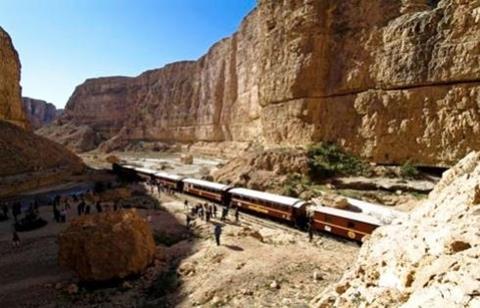Dir: Sami Tlili. Lebanon-Qatar-Tunisia-UAE. 2012. 84mins

The little-reported – in the West at least – uprising by impoverished workers in Tunisia’s Gafsa mining basin in 2008 offers a clear indication of unhappiness by exploited workers and a perspective of the growing sense of discontent in the country in the lead-up to the 2011 revolution.
The film talks to those involved and details the coverage of the event as well as presenting footage of the reality of the brutal suppression by the government.
Sami Tlili’s fascinating documentary, while straight-forward in cinematic structure impressively captures the anger and frustration of people who lived through the events as well as their current frustration that the brutal suppression by protestors, that saw many killed, hunted and imprisoned has never been properly investigated. The film had its world premiere at the Abu Dhabi Film Festival.
The civil dissent that drove the workers to protest is typical for the region, where miners of phosphate must strike for basic rights, and where poverty seems to get worse rather than better, despite the massive profits made by the mining. Some 25% of Tunisia’s economy is based on phosphate ore.
The film also implies that the region’s workers were caricatured by the country’s general population, who regarded them and simple peasants and simply had no interest in the crisis – exasperated by biased television coverage – during the six month period of the uprising.
Beginning in January 2008, the teachers, the unemployed and workers led six months of riots in the Gafsa mining basin, and in the town of Redeyef in particular. This unprecedented uprising became modern Tunisia’s first popular movement and brought fresh attention to the mountainous southwest.
The film talks to those involved and details the coverage of the event as well as presenting footage of the reality of the brutal suppression by the government. Around 30,000 police descended on Redeyef – the same amount as the whole population – to supress the uprising. Interviewees talk about the violence involved and how many of the protesters had to hide up in the mountains as police sought to track down any ringleaders.
More than four years have now passed since the initial revolt and Gafsa’s people feel they are still out of sight of the new government and what had happened is all but forgotten. All that remains are shattered lives quietly holding onto pride trying to have those who were killed recognised as martyrs.
Production company: Cinetelefilms, Nomadis Images
Sales contact: Cinetelefilms, mh.attia@cinetelefilms.net
Producers: Habib Attia, Dora Bouchoucha
Cinematography: Hatem Nechi, Hazem Berrabah, Adonis Nadhem Romdhane
Editors: Achraf Amri, Anis Hammami
Music: Rabiaa Bouhrizi, Myriam Laabidi




















